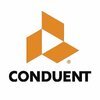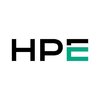Transaction Processing Associate
50+ Transaction Processing Associate Interview Questions and Answers

Asked in Accenture

Q. What key points have you noticed when processing invoices?
Key points to notice during invoice processing
Accuracy of invoice details
Matching invoice with purchase order and receipt
Checking for duplicate invoices
Verifying payment terms and discounts
Ensuring proper coding and approval
Identifying any discrepancies or errors
Maintaining proper documentation and record keeping

Asked in iEnergizer

Q. What is the difference between a credit card and a debit card?
Credit cards allow you to borrow money while debit cards use your own funds.
Credit cards have a credit limit while debit cards have a balance limit
Credit cards charge interest on unpaid balances while debit cards do not
Credit cards offer rewards and cashback while debit cards do not always offer these benefits
Credit cards can help build credit history while debit cards do not affect credit score
Transaction Processing Associate Interview Questions and Answers for Freshers

Asked in Accenture

Q. What are the roles and responsibilities of a Transaction Monitoring Analyst?
Transaction Monitoring Analyst monitors financial transactions for potential fraud and suspicious activity.
Review and analyze transactions for potential fraud or suspicious activity
Identify and investigate any anomalies or red flags
Communicate findings to management and other relevant parties
Maintain accurate records and documentation
Stay up-to-date on industry regulations and best practices
Collaborate with other departments to improve transaction monitoring processes

Asked in Genpact

Q. What is Insurance and claims? What are their types?
Insurance is a contract between a policyholder and an insurer to provide financial protection against specified risks. Claims are requests made by policyholders to receive benefits from their insurance policies.
Insurance is a risk management tool that helps individuals and businesses protect themselves against potential financial losses.
There are various types of insurance such as life insurance, health insurance, auto insurance, property insurance, and liability insurance.
Cl...read more

Asked in Accenture

Q. What is net profit? What is gross profit? What is deprication?
Net profit is the profit after all expenses are deducted. Gross profit is the profit before expenses are deducted. Depreciation is the decrease in value of an asset over time.
Net profit is calculated by subtracting all expenses from total revenue.
Gross profit is calculated by subtracting the cost of goods sold from total revenue.
Depreciation is a non-cash expense that reflects the decrease in value of an asset over time.
Depreciation is usually calculated using the straight-li...read more

Asked in Apex Services

Q. What is Vlookup, Hookup, pivot table and graph, count and countifs in Excel.
Vlookup is a function used to search for a value in a table and return a corresponding value from another column.
Vlookup stands for vertical lookup.
It is commonly used to find and retrieve data from a large dataset.
It requires a lookup value, a table range, and a column index number.
Example: =VLOOKUP(A2, B2:D10, 3, FALSE) will search for the value in A2 within the range B2:D10 and return the value from the third column.
Hookup is not a recognized term in Excel.
Pivot table is a...read more
Transaction Processing Associate Jobs




Asked in ICICI Bank

Q. What do you know about banking?
Banking involves financial transactions, loans, investments, and other financial services.
Banks accept deposits from customers and use that money to make loans to other customers.
They offer various types of accounts such as savings, checking, and money market accounts.
Banks also provide services such as credit cards, mortgages, and investment opportunities.
They are regulated by government agencies such as the Federal Reserve and FDIC.
Examples of banks include JPMorgan Chase, ...read more

Asked in Accenture

Q. What is final account and balance sheet. difference between.
Final account and balance sheet are financial statements used to summarize a company's financial position.
Final account is a statement of all the accounts in a ledger, showing the balances of each account.
Balance sheet is a financial statement that shows a company's assets, liabilities, and equity at a specific point in time.
Final account is prepared before the balance sheet.
Balance sheet is prepared after the final account.
Final account is used to prepare the balance sheet.
B...read more
Share interview questions and help millions of jobseekers 🌟


Asked in Accenture

Q. What do you know about the E-commerce Transaction Process?
E-commerce transaction process involves the online buying and selling of goods or services.
E-commerce transactions are conducted electronically over the internet.
Customers browse products online, add items to their cart, and proceed to checkout.
Payment is made online using various methods such as credit cards, digital wallets, or bank transfers.
Once payment is confirmed, the order is processed, and the product is shipped to the customer.
E-commerce platforms often use secure p...read more

Asked in Accenture

Q. How much money do you need to buy food?
The amount of money needed to buy food varies depending on various factors.
The cost of food depends on the type of food, location, and personal dietary preferences.
Factors such as inflation, seasonality, and availability of certain ingredients can also affect the cost.
Individuals with dietary restrictions or special dietary needs may require more money to buy specific food items.
The number of people to be fed and the frequency of meals also impact the overall cost.
Food prices...read more

Asked in Accenture

Q. How would you record the journal entry for an item bought on credit with a 10% discount?
Journal posting for a credit purchase with a 10% discount involves recording the transaction accurately in the accounting system.
Identify the total purchase amount before discount.
Calculate the discount: Total Amount x 10%.
Subtract the discount from the total amount to get the net payable.
Record the journal entry: Debit Inventory/Expense and Credit Accounts Payable.
Example: If the item costs $100, discount is $10, net payable is $90.

Asked in Accenture

Q. Will you be able to tie your shoes?
Yes
Yes, I am able to manage tying my shoes.
I have been tying my shoes since childhood and it is a basic skill I possess.
I can tie different types of knots, such as the standard bow knot or a double knot.
I am comfortable tying shoes with different types of laces, including round, flat, or elastic laces.

Asked in Accenture

Q. What are spf pep What all are the documents required to complete KYC
SPF PEP are regulations related to anti-money laundering measures.
SPF stands for Sanctions, Politically Exposed Persons (PEP), and Financial Crime
PEP refers to individuals who hold prominent public positions or have close associations with such individuals
Documents required for KYC include government-issued ID, proof of address, and proof of income/employment
Additional documents may be required for PEPs, such as proof of source of funds and details of business relationships

Asked in Apex Services

Q. What is T codes, how to create variance and layout in SAP, and how to export data from SAP
T-codes are transaction codes used in SAP to perform specific tasks. Variance and layout can be created using SAP's customization tools. Data can be exported from SAP using various methods.
T-codes are shortcuts to perform specific tasks in SAP
Variance and layout can be created using SAP's customization tools like SAP GUI
Data can be exported from SAP using various methods like SAP GUI, ABAP programs, or SAP Data Services
To create variance, go to transaction code KE4S and selec...read more

Asked in Accenture

Q. Who is the financial minister, New tax regimes
The current Finance Minister of India is Nirmala Sitharaman who introduced new tax regimes in the Union Budget 2020.
Nirmala Sitharaman is the Finance Minister of India.
She introduced new tax regimes in the Union Budget 2020.
The new tax regimes include optional tax slabs with reduced rates for individuals and HUFs.

Asked in BNP Paribas

Q. What motivated you to select investment banking as your chosen domain?
My passion for finance and desire to impact businesses motivated my choice of investment banking as a career path.
Strong interest in financial markets and their dynamics, inspired by reading books like 'The Intelligent Investor'.
Desire to work in a fast-paced environment where I can solve complex financial problems, similar to my experience in a finance internship.
Aspiration to help companies grow and succeed through strategic financial advice, as seen in case studies of succ...read more

Asked in Mphasis

Q. Investment banking What is investment banking and top companies
Investment banking involves helping companies and governments raise capital by underwriting and selling securities.
Investment banks provide financial advisory services to clients
They help clients raise capital by underwriting and selling securities
Top investment banks include Goldman Sachs, JPMorgan Chase, and Morgan Stanley

Asked in BNP Paribas

Q. Are you adaptable to relocation and flexible with shift timings?
I am highly adaptable and open to relocation and flexible shift timings to meet the needs of the organization.
I have previously relocated for a job opportunity, which helped me grow both personally and professionally.
I understand that shift timings can vary, and I am willing to adjust my schedule to ensure smooth operations.
In my last role, I worked night shifts for several months, which taught me to manage my time effectively.
I believe that being adaptable is crucial in toda...read more

Asked in Accenture

Q. Explain Trade Life Cycle Trade settlement procedure in Back Officer
Trade life cycle refers to the stages involved in a trade from initiation to settlement.
The trade life cycle includes trade initiation, trade execution, trade confirmation, trade settlement, and trade reconciliation.
Back office operations involve trade settlement, which includes matching trade details, ensuring proper documentation, and processing payments.
Trade settlement involves communication between various parties such as brokers, custodians, and clearing houses.
Errors i...read more

Asked in Genpact

Q. What is amortization?
Amortization is the process of spreading out a loan or debt over a period of time with regular payments.
It is a method of paying off a debt over a fixed period of time
It involves making regular payments that include both principal and interest
The payments are calculated based on the loan amount, interest rate, and repayment period
Examples include mortgage loans, car loans, and student loans

Asked in Ernst & Young

Q. Which level of transaction monitoring was performed?
Level 1 transaction monitoring was performed.
Monitoring of basic transactions for compliance and fraud detection
Identifying and investigating suspicious activities
Escalating flagged transactions for further review
Ensuring adherence to regulatory requirements
Examples: monitoring credit card transactions for unusual spending patterns, detecting potential money laundering activities

Asked in Accenture

Q. Are you comfortable working flexible hours?
Yes, I am comfortable with working flexible timings to accommodate the needs of the job.
I am willing to work evenings, weekends, or holidays if required
I can adjust my schedule to meet deadlines or handle unexpected workloads
I have previous experience working flexible hours in my previous job

Asked in 2COMS

Q. Why is OTC important in the logistics business?
OTC is important in logistics business as it helps in managing inventory, reducing costs, and improving customer satisfaction.
OTC helps in managing inventory by ensuring timely delivery of goods to customers.
OTC reduces costs by streamlining the order fulfillment process and minimizing errors.
OTC improves customer satisfaction by providing real-time visibility into order status and tracking.
OTC enables faster order processing and fulfillment, leading to quicker delivery times...read more

Asked in Genpact

Q. What is a three-way match?
Three way match is a process of matching the purchase order, goods receipt, and invoice to ensure accuracy and prevent fraud.
It involves comparing the purchase order with the goods receipt to ensure the correct items and quantities were received.
Then, the invoice is compared to the purchase order and goods receipt to ensure the correct prices and terms were applied.
If all three documents match, the invoice can be approved for payment.
Examples include verifying that the quanti...read more

Asked in Accenture

Q. What is aml When do you use aml
AML stands for Anti-Money Laundering. It is a set of laws, regulations, and procedures designed to prevent criminals from disguising illegally obtained funds as legitimate income.
AML is used in financial institutions to detect and prevent money laundering activities.
It involves identifying and verifying the identity of customers, monitoring transactions, and reporting suspicious activities.
Examples of suspicious activities include large cash deposits, frequent international t...read more

Asked in Accenture

Q. What are accruals and prepayments?
Accrual is the recognition of revenue or expenses that have been earned or incurred but not yet received or paid. Prepaid is the recognition of payment for goods or services that have not yet been received or used.
Accrual is used to match revenue and expenses to the period in which they were earned or incurred
Prepaid is used to recognize payment for goods or services that have not yet been received or used
Accrual and prepaid are both important concepts in accounting and finan...read more

Asked in IBM

Q. What is the B2B process?
B2B process refers to business-to-business transactions where companies sell products or services to other companies.
B2B process involves transactions between two businesses rather than between a business and a consumer.
It often includes bulk orders, negotiated pricing, and long-term contracts.
Examples of B2B processes include wholesale transactions between manufacturers and retailers, or software licensing agreements between technology companies.

Asked in Hewlett Packard Enterprise

Q. Why do you want to join this company?
I admire your company's commitment to innovation and excellence in transaction processing, which aligns with my career goals and values.
Your company is a leader in transaction processing technology, which excites me as I want to work with cutting-edge solutions.
I appreciate your focus on customer satisfaction and efficiency, as seen in your recent project that reduced transaction times by 30%.
The collaborative work culture here is appealing; I thrive in environments where tea...read more

Asked in 2COMS

Q. What is customer data management?
Customer data management involves collecting, organizing, and analyzing customer information to improve customer service and marketing strategies.
Collecting and storing customer information securely
Organizing data for easy access and analysis
Analyzing data to understand customer behavior and preferences
Using data to personalize customer interactions and improve customer satisfaction
Ensuring compliance with data protection regulations such as GDPR

Asked in Teleperformance

Q. What is business process outsourcing?
Business process outsourcing is when a company contracts out specific business tasks to a third-party provider.
Companies outsource tasks like customer service, payroll processing, and IT services to save costs and improve efficiency.
Outsourcing can be done domestically or internationally, depending on the company's needs and budget.
Popular outsourcing destinations include India, the Philippines, and Eastern Europe.
Outsourcing allows companies to focus on their core competenci...read more
Interview Questions of Similar Designations
Interview Experiences of Popular Companies








Reviews
Interviews
Salaries
Users

















